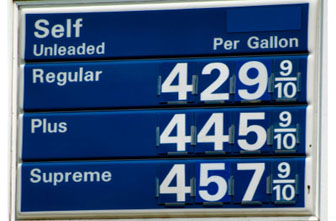
Profit and prosper with the best of Kiplinger's advice on investing, taxes, retirement, personal finance and much more. Delivered daily. Enter your email in the box and click Sign Me Up.
You are now subscribed
Your newsletter sign-up was successful
Want to add more newsletters?

Delivered daily
Kiplinger Today
Profit and prosper with the best of Kiplinger's advice on investing, taxes, retirement, personal finance and much more delivered daily. Smart money moves start here.

Sent five days a week
Kiplinger A Step Ahead
Get practical help to make better financial decisions in your everyday life, from spending to savings on top deals.

Delivered daily
Kiplinger Closing Bell
Get today's biggest financial and investing headlines delivered to your inbox every day the U.S. stock market is open.

Sent twice a week
Kiplinger Adviser Intel
Financial pros across the country share best practices and fresh tactics to preserve and grow your wealth.

Delivered weekly
Kiplinger Tax Tips
Trim your federal and state tax bills with practical tax-planning and tax-cutting strategies.

Sent twice a week
Kiplinger Retirement Tips
Your twice-a-week guide to planning and enjoying a financially secure and richly rewarding retirement

Sent bimonthly.
Kiplinger Adviser Angle
Insights for advisers, wealth managers and other financial professionals.

Sent twice a week
Kiplinger Investing Weekly
Your twice-a-week roundup of promising stocks, funds, companies and industries you should consider, ones you should avoid, and why.

Sent weekly for six weeks
Kiplinger Invest for Retirement
Your step-by-step six-part series on how to invest for retirement, from devising a successful strategy to exactly which investments to choose.
First, the bad news: the prices of crude oil -- and gasoline at the pump -- are through the roof again. Pundits talk grimly about the nation's overdependence on oil from nations in turmoil in the Middle East and north Africa -- and the potential for even more price spikes ahead.
But here's a bright spot: Americans are using less oil -- a trend that’s sure to continue. U.S. oil consumption peaked in 2005, at about 21 million barrels per day, and the trend is expected to continue for the rest of the decade. What's going on? Here are eight reasons America will keep reducing its thirst for oil.
By Jim Patterson, Associate Editor, The Kiplinger Letter
March 2011
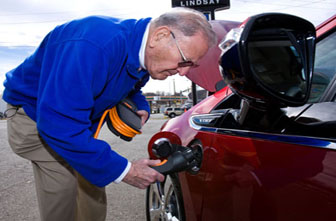
Uncle Sam’s Tougher Fuel Economy Rules
By the 2016 model year, automakers will have to achieve average fuel economy for their passenger cars and light trucks of 34.1 miles per gallon, up from 27.3 mpg in the 2011 model year. The rule change means auto companies will have to improve their models’ fuel efficiency by 4.3% each year between now and 2016.
Washington isn’t stopping there -- regulators are working on even stricter rules for model years 2017 through 2025, with final targets expected to range from 47 to 62 mpg for cars and light trucks. These conservation moves spell a huge reduction in oil use.
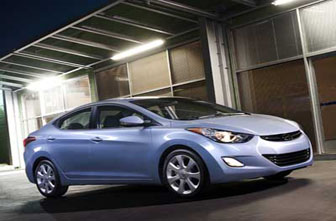
Electric Cars: Who Needs Gasoline?
Battery power promises to take fuel efficiency to the max, as automakers expand their offerings of conventional hybrid cars and roll out models that can run purely on electricity. The 50-mpg Toyota Prius, the most recognizable hybrid on the road, faces increasing competition from Honda, Ford, Hyundai and other manufacturers making their own hybrids.
Meanwhile, Nissan’s all-electric Leaf and Chevy’s plug-in hybrid Volt run on electrons and never or seldom need gas. Look for more manufacturers to join the electric-car rollout in the next few years, particularly as battery costs decline.
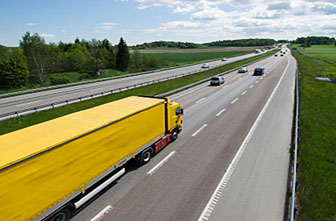
Guzzlers Out, Gas Sippers In
In response to rising consumer demand, automakers are designing downsized engines that keep horsepower up while cutting fuel consumption. How? They're using turbochargers, direct fuel injection and advanced transmissions with more gears. Result: Ford, Hyundai, Chevrolet and Honda have all recently introduced conventional gas-powered cars that achieve at least 40 mpg on EPA’s highway test cycle. These cars include models of Ford’s Fiesta and Focus, Chevrolet’s Cruze, Honda’s Civic and the Hyundai Elantra.
Until a year ago, the only gas-powered, nonhybrid car in the U.S. that could manage that trick was Daimler’s smart fortwo, a tiny two-seater. Meanwhile, lots of older gas guzzlers were retired as part of Uncle Sam’s recent cash-for-clunkers program.

We're Logging Fewer Miles on the Road
The number of miles driven by U.S. drivers grew every year from 1991 until 2005. But the trend reversed in 2006, as the number of miles driven dropped slightly from 2005’s 1.7 trillion.
The trend continued into 2007 and accelerated dramatically in 2008 -- down to just over 1.6 million -- when expensive oil pushed gas prices over $4 per gallon. The consensus among analysts is that the trend will continue. As the age-old axiom puts it: The cure for high prices is...high prices.
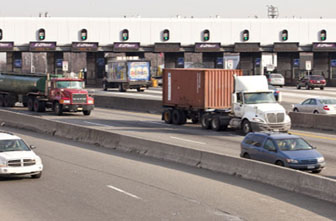
The Miracle of GPS
The rapid spread and widespread use of global positioning systems for finding the fastest, least-congested routes to work and other destinations is making travel more efficient. Truckers are leading the way. The price of diesel fuel is their biggest cost, and with diesel fuel now more costly than gasoline, trucking firms are doing all they can to wring more miles out of each gallon. GPS is playing a big role, helping drivers drive smarter and conserve fuel.
Meanwhile, railroads -- also a user of diesel fuel -- are switching to lighter rail cars, more-efficient locomotives and friction-reducing rails to cut their consumption.
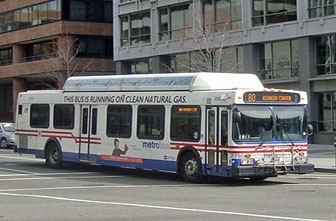
Smarter Toll Collection
More than half of all states now employ some form of electronic toll collection, which allows drivers to pay road tolls without having to stop and fumble for change to hand an attendant while wasting fuel and, in turn, causing fuel-wasting backups.
E-ZPass and other such electronic systems will grow more prevalent as cash-strapped states look for ways to cut toll collecting expenses, including salaries for toll collectors. It’s a small change that can save millions of gallons of fuel each year.
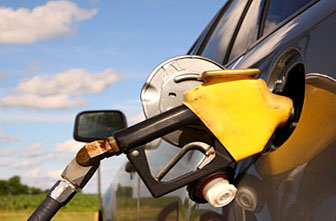
Switching to Natural Gas
Abundant supplies of natural gas in the U.S. spell a viable and growing alternative to oil. Today, there are about 110,000 vehicles running on natural gas in the U.S. Most are in light-duty commercial roles -- city buses, for example.
But vehicle use of natural gas is poised to soar in coming years as new fields are tapped, driving the price of natural gas to rock bottom. It’s cheap, too -- engines burning compressed natural gas cost less to operate than oil-powered models. Truckers are eying a switch to liquefied natural gas that produces the same power as big diesel engines at about $1.50 less per gallon.

Filling Up with Corn (and Garbage)
Ethanol distilled from corn has already displaced about 10% of U.S. oil demand. That’s sure to go up, courtesy of the Environmental Protection Agency’s thumbs-up to a 50% increase in the amount of ethanol that refiners can blend into regular gasoline. Also helping the cause: Growing acceptance and use of E85 -- 85% ethanol and 15% gas -- in vehicles equipped with "flex fuel" engines.
Though cars running on E85 get fewer miles per fill-up, the cost of a gallon of E85 is now about 50¢ cheaper than a gallon of gasoline. That’s getting people’s attention. Biofuels will make even greater inroads as production expands from grains to nonfood materials such as algae, switchgrass and, yes, even household trash that’s now thrown into landfills.

More from Kiplinger
SLIDE SHOW: America's Changing Energy Picture
FORECAST: Where Energy Prices Are Headed
SLIDE SHOW: 2011 Cars -- The Most Fuel Efficient
SLIDE SHOW: 8 Robots That Will Change Your Life
SLIDE SHOW: 10 Energy-Efficient Moves to Do in a Weekend
Profit and prosper with the best of Kiplinger's advice on investing, taxes, retirement, personal finance and much more. Delivered daily. Enter your email in the box and click Sign Me Up.
-
 Ask the Tax Editor: Federal Income Tax Deductions
Ask the Tax Editor: Federal Income Tax DeductionsAsk the Editor In this week's Ask the Editor Q&A, Joy Taylor answers questions on federal income tax deductions
-
 States With No-Fault Car Insurance Laws (and How No-Fault Car Insurance Works)
States With No-Fault Car Insurance Laws (and How No-Fault Car Insurance Works)A breakdown of the confusing rules around no-fault car insurance in every state where it exists.
-
 7 Frugal Habits to Keep Even When You're Rich
7 Frugal Habits to Keep Even When You're RichSome frugal habits are worth it, no matter what tax bracket you're in.
-
 How Much Will Car Prices Go Up With Tariffs?
How Much Will Car Prices Go Up With Tariffs?Tariffs could drive car prices up even higher, for new and used cars, as well as for American brands.
-
 What to Do With Your Tax Refund: 6 Ways to Bring Growth
What to Do With Your Tax Refund: 6 Ways to Bring GrowthUse your 2024 tax refund to boost short-term or long-term financial goals by putting it in one of these six places.
-
 What Does Medicare Not Cover? Eight Things You Should Know
What Does Medicare Not Cover? Eight Things You Should KnowMedicare Part A and Part B leave gaps in your healthcare coverage. But Medicare Advantage has problems, too.
-
 15 Reasons You'll Regret an RV in Retirement
15 Reasons You'll Regret an RV in RetirementMaking Your Money Last Here's why you might regret an RV in retirement. RV-savvy retirees talk about the downsides of spending retirement in a motorhome, travel trailer, fifth wheel, or other recreational vehicle.
-
 The 24 Cheapest Places To Retire in the US
The 24 Cheapest Places To Retire in the USWhen you're trying to balance a fixed income with an enjoyable retirement, the cost of living is a crucial factor to consider. Is your city the best?
-
 The Six Best Places to Retire in New England
The Six Best Places to Retire in New Englandplaces to live Thinking about a move to New England for retirement? Here are the best places to land for quality of life, affordability and other criteria.
-
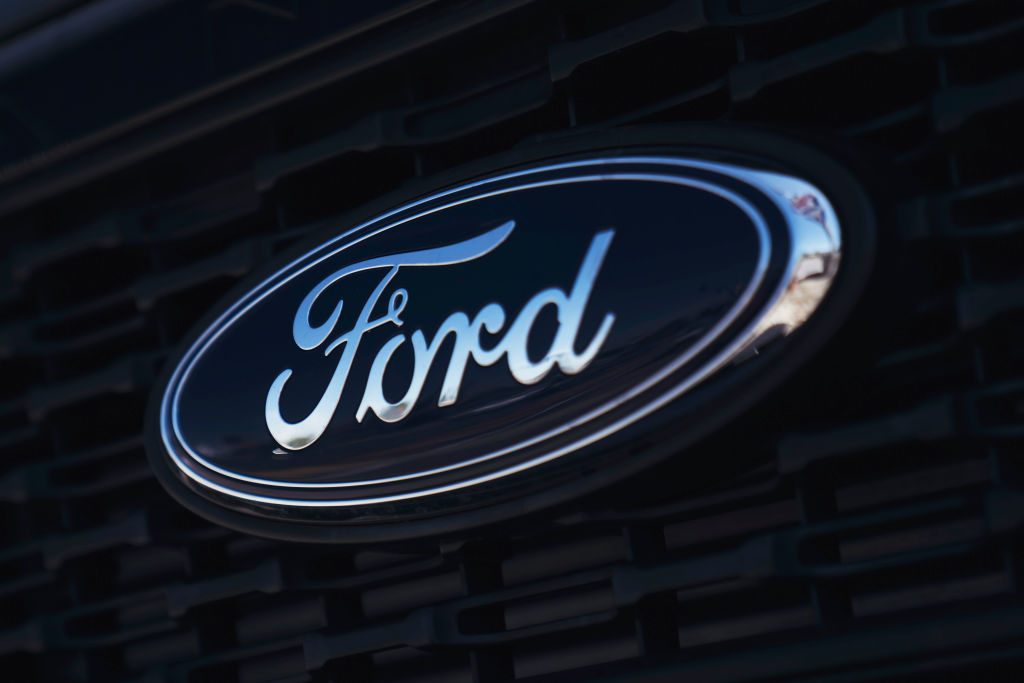 Ford Recalls 45,000 Cars Over Faulty Door Latches
Ford Recalls 45,000 Cars Over Faulty Door LatchesThe Ford recall follows its 2020 recall for the same issue. Here's what to know.
-
 The 10 Cheapest Countries to Visit
The 10 Cheapest Countries to VisitWe find the 10 cheapest countries to visit around the world. Forget inflation and set your sights on your next vacation.
